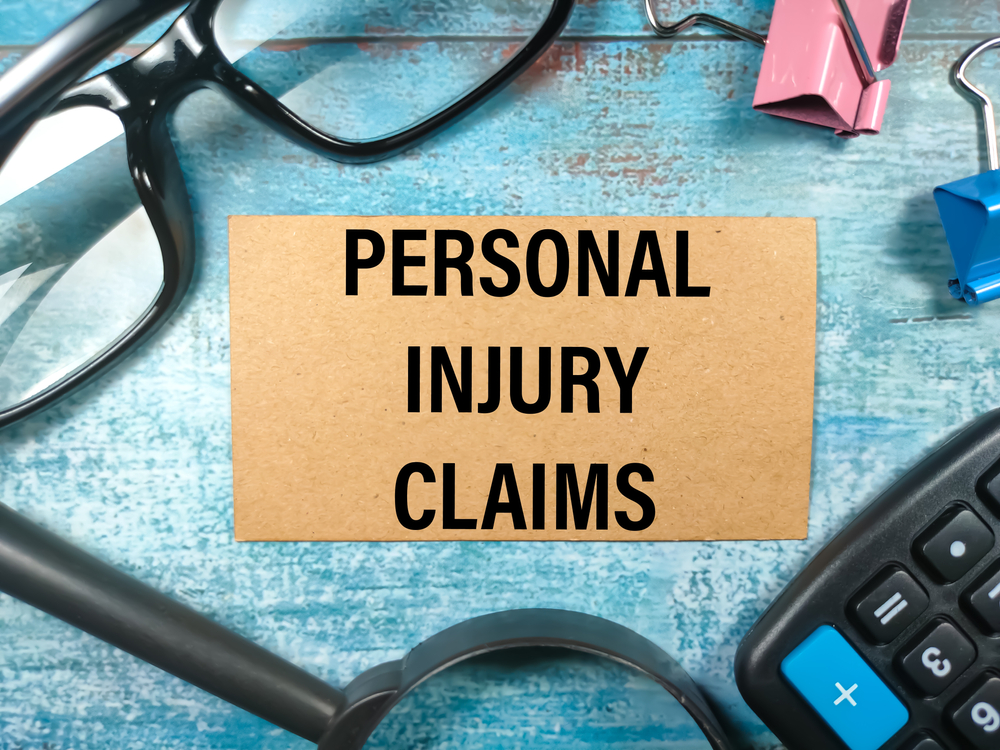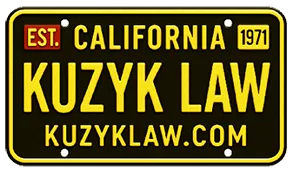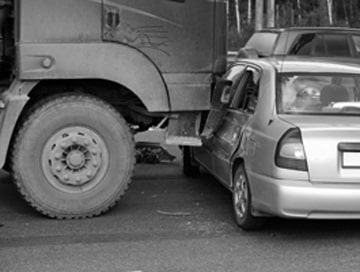
How long does a personal injury lawsuit take in California? That is a question every Californian plaintiff (a person who brings a case against another person in court) asks their lawyer at some point. We must consider several possible scenarios before answering that question. Here, we will look at the various factors that will affect the duration of a personal injury lawsuit and anything you can do to speed up a lawsuit or settlement.
Before getting into how long a personal injury lawsuit takes in California, it is critical to understand some essential factors you will encounter during your case. All these factors will affect the time it takes for a personal injury lawsuit. So, let’s start by addressing these factors.
Personal injury case
A personal injury case is a legal dispute when someone suffers harm from an injury or an accident, and someone is legally responsible for causing that harm. There are two outcomes for a personal injury case:
- A formal lawsuit. A personal injury case becomes formalized through a personal injury attorney representing you, the plaintiff, in court.
- An informal settlement. The case is resolved out of court and involves some form of negotiation followed by a written agreement signed by both parties.
Statute of limitations
A statute of limitations is the amount of time you have to file a civil lawsuit to seek a legal remedy. It is a strict deadline that you must adhere to for filing.
The statute of limitations is governed by state laws and varies from one state to the next and from one type of injury to the next. For example, the statute of limitations for sex crimes in Texas is five years, but for personal injuries is two years.
California’s statute of limitations for a personal injury lawsuit
In California, the statute of limitations for a personal injury lawsuit (California Code of Civil Procedure section 335.1) is two years. That means you have two years from the time of the accident/injury to file a case in court against the person who caused that harm. If you fail to take legal action (file a lawsuit) within this timeframe, you can lose your right to make a claim.
California’s statute of limitations for claims against a county, city, or a California state government agency
You have six months to file a personal injury claim against a government entity. As well as that, you must follow a set of procedural rules very strictly (California Government Code section 911.2).
Exceptions to the California statute of limitations for personal injury lawsuits
Sometimes the statute of limitations does not apply to a personal injury lawsuit. While that gives you time to build your case, the lawsuit could carry on for longer. Here are three exceptions to the two-year statute of limitations.
Discovery of harm: In several instances, victims might not know the exact extent of their injuries until much later. If you don’t discover the damage or injury immediately, but only much later, then the “discovery of harm” rule comes into action. According to the discovery of harm rule, the statute of limitations begins only after you discover the harm. You have a year from the date your injury was found to file a lawsuit.
For example, you are injured in an accident. You undergo surgery and then physiotherapy. It might be several months before you and your doctors realize that you may never be able to walk correctly again. Then your one-year statute of limitations begins from the date the harm/injury was discovered and recorded by your doctor.
Please note that in such cases, you have a longer time to file a lawsuit. However, you will have to prove that the extent of your injury or the injury itself was not established until a later date. Your medical records can be instrumental in providing critical information on the subject.
The injured person is under 18 and must wait until they are 18 years to file a lawsuit.
The injured person does not have the legal capacity to make decisions due to temporary or permanent mental illness.
The person or people who allegedly caused the injury left California after the accident and before a lawsuit could be filed.
All the above factors will affect the answer to the question: How long does a personal lawsuit take?
The Average Time It Takes To Settle A Personal Lawsuit in California
The process
Settlement negotiations: A settlement negotiation is a continuous process that extends across the entire personal injury claim process – until the settlement of the case. Often, settlement negotiations begin before filing a lawsuit to quickly bring an end to the personal injury claim. At other times, the insurance company does not take a claim seriously until a lawsuit is filed.
Filing a lawsuit: After filing a lawsuit against the defendant, the defendant will be served anywhere between 30 and 60 days. The defendant will have between 30 and 45 days to respond. So, on average, it takes about three months from the date you file a personal injury lawsuit to get a first response from the insurer. Once you get a response, the lengthy pre-trial discovery process begins.
Alternative dispute resolution: Sometimes, both parties agree to go into mediation to avoid a trial. If this is a course of action you choose, the mediation can begin anywhere between nine and 18 months after the accident. However, the mediation process is not lengthy and can end in a couple of days.
Trial: Expect a trial to begin only after a year after your accident. Don’t be surprised if it’s close to two years before your case goes to trial. Once the trial begins, it will continue for anywhere between a few days to a few weeks. If the trial schedule conflicts with the judge’s schedule, the trial date will have to be rescheduled.
The Type of Injury
The type of injuries suffered during an accident can affect the answer to the question: How long does a personal injury lawsuit take.
Minor injuries: If you sustained minor injuries, you could expect a quick settlement soon after the accident.
Serious injuries: if you sustained severe injuries during the accident, expect the lawsuit to go on for anywhere between four months and a couple of years after the accident.
When does a personal injury lawsuit drag on for longer than usual?
Sometimes a personal injury case can go on for longer than expected. Here are some instances when that could happen:
There are legal issues. For example, it is hard to prove liability (who was at fault) because the witnesses have different versions of the incident. Then, a lawyer at Kuzyk Personal Injury & Car Accidents Lawyers must file a personal injury lawsuit. The insurer might decide that you don’t have the legal right to file a case. Then the case does not move forward until the judge decides you have a right to sue.
There are problems with the personal injury you sustained. Suppose your treating doctors decide that the defendant’s negligence might not have caused your injuries. The insurer will not make a fair settlement offer until your lawyer gets a doctor to testify that your injuries were caused by the defendant’s actions.
The case involves a lot of money: If there is a lot of damage, the case will naturally include a lot of money. Insurers almost always refuse to pay large sums of money. That is because their business model is to make massive profits without giving money in claims. If that happens, then they will want to investigate every aspect of your claim.
Insurers will not stop looking for loopholes in your claim. They must be convinced that they don’t have a powerful enough defense to your claim. Or, they must realize that your injuries are genuinely as bad as you say they are.
You have not yet reached maximum medical improvement (MMI). If you are still healing or receiving medical treatment, the accident’s impact on your quality of life is still unclear. You and your lawyer will naturally want to wait until the accident’s total impact on your physical and mental health can be determined to understand your case’s actual value.
It is hard to estimate the damages: Some damages are easy to calculate. For example, you know how much you paid for your medical bills, and you can calculate the income you lost during recovery. However, there are other costs that you are eligible to receive but are challenging to determine. For example, how much was your pain and suffering were worth?
If your ability to work is compromised due to the accident, how much should you be paid, and on what basis will you make those calculations?
It takes a great deal of time to research and get answers. You will often have to rely on solutions from experts to get an amount that is acceptable to the at-fault party.
How to speed up a personal injury lawsuit?
When determining how long a personal injury lawsuit takes, it’s also worth considering how you can speed up a personal injury lawsuit. Here are some tips to ensure the entire process goes smoothly.
The first steps after an injury or accident
- After an injury/accident, the first steps are most crucial because they can prove highly beneficial for a quick end to a satisfactory settlement or lawsuit.
- Take notes of the incident. Write any details you think will be relevant. The sooner you do this, the more helpful than relying on memory at a later date.
- Find and preserve any evidence relating to the injury or accident. Return to the scene and take photographs of the accident scene from various angles. Try to photograph the scene at the same time and same day of the week that the accident took place to show light conditions, traffic, etc.
- Protect physical evidence. Document your injuries. Locate witnesses and get their contact details. Their account of more information about the accident can help speed up the entire process.
- Get all the necessary medical records. HIPAA allows you to request medical records of any deceased person, your children’s records, and the medical records of your wards. It takes approximately a month to get these records, so the faster you make a request, the quicker you can proceed with the lawsuit.
- Get immediate medical attention to confirm your injuries and establish causation. Medical attention might also be a clause under your insurance coverage. If you fail to get medical attention, the at-fault party can use that to prolong the case and reduce your settlement.
- You can fight your case on your own, but that is not recommended. Get a reliable car accident lawyer from a reputed law firm to start building on your case. It’s also the best way to ensure a quick settlement of your claim. Your personal injury lawyer will have complete knowledge of the legal system and help you get the best compensation.
- Let your lawyer know all the information about the accident to build your case.
Contact The Auto Accident Lawyers At Kuzyk Personal Injury & Car Accidents Lawyers For Help Today!
No two lawsuits are exactly alike, so it’s hard to answer the question: How long does a personal injury lawsuit take? Several factors are considered when determining how long a lawsuit will take. The good news is that a relatively large number of personal injury cases get settled out of court. A dedicated personal injury lawyer will accelerate the entire process and can ensure you get the money you deserve as quickly as possible.
Insurance companies will use a wide range of tactics to ensure your claim or lawsuit is open for a long time and that you don’t receive the compensation you truly deserve. Hire a personal injury lawyer to help you through the entire process and counter the tricky strategies that insurance companies will try to use against you. Don’t attempt to fight your case. If you do that and then hire a personal injury lawyer at a later date, it will only complicate and postpone the entire process.












